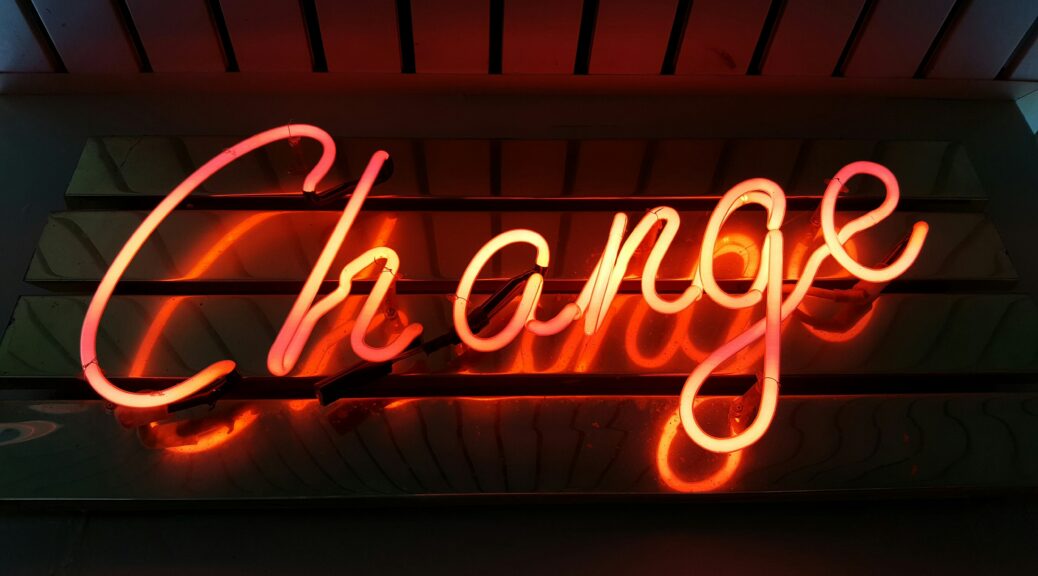Recently I was asked to compare and contrast the Anti-Vietnam War Protests of the mid to late 1960’s and early 1970’s with the current Pro-Palestinian, Pro-Gaza, and Anti-Israel protests, largely on college campuses. I was very active in activities against the War in Vietnam while in college and graduate school. I have some regrets at some of the stupid things I said and did. Therefore I try to understand the current demonstrators. I had a ox being gored—fear of being drafted. Thus, I had a personal stake in the actions. Today’s students have no such stake. It is especially notable that most of the groups opposing Israel’s stance in the Gaza War have no stake whatsoever in that part of the world.
Category Archives: Authors A-H
Authors listed by last name A-H
Again, cutting off one’s nose to spite one’s face – by Terry Howard
I chuckled at the news a few years ago about farmers who whined and bellyached about those “illegals” flooding the borders – southern borders, of course. Well, those tax-paying “illegals” apparently got the message because over a relatively short period of time their numbers of crossings plummeted.
Well, to the surprise of those forward-looking farmers, that summer much of their crops rotted in the sun because “illegals” were no longer available to pick them, and “real Americans” took a pass on those jobs.
Continue reading Again, cutting off one’s nose to spite one’s face – by Terry Howard
Catalyzing Inclusive Urban Economies- by Ainesh Dey
The Dynamics of Urban Economies in India
In the rapidly changing landscape of urban economies in India, nuanced civic engagement, enhanced transparency, accountability, and representation have come to the forefront as significant issues. This piece seeks to investigate the shift in the public administration’s discourse from a traditional solution to a more collaborative one with the aim of creating inclusive and sustainable policy frameworks.
The prospect of nuanced civic engagement in democratic processes plays an important role in spearheading transparency, accountability and representation. It also strengthens the overall socio-political and economic character of contemporary administrative discourse. At a time when we are experiencing a paradigm shift from traditional redressal of grievances to instances of collaborative solution building, considerable emphasis has been laid on the effective streamlining of policy frameworks, thereby making them more inclusive and sustainable.
Continue reading Catalyzing Inclusive Urban Economies- by Ainesh Dey
Diversity and Speech Part 44: Generations of Gender Talk – by Carlos Cortés
Keeping up with the ongoing changes in diversity language has become a matter of lifelong learning. For a near-nonagenarian (I turn 90 on April 6), this means continuous learning as well as relentless unlearning. That is, trying to unlearn old uses of language that decades of repetition have deeply wired into my brain.
Take gender. Growing up in 1940’s Kansas City, Missouri, I learned that men were men and women were women. I inhabited a world of man talk and woman talk, men’s jobs and women’s jobs, men’s clothes and women’s clothes. It wasn’t much different in college during the 1950’s. We were men and women, not cisgender or transgender men and women.
Continue reading Diversity and Speech Part 44: Generations of Gender Talk – by Carlos Cortés
DIPLOMACY IN THE INDO PACIFIC – by Ainesh Dey
THE RISE OF MINILATERALISM
INTRODUCTION
The present geopolitical landscape has witnessed a seemingly drastic transition, with the widespread emergence of multifarious groupings, popularly referred to as “Minilaterals”, premised upon the imperative understanding of peacebuilding and conflict resolution, and shared threat perceptions, with regards to numerous strategically viable areas. The growing realization of the virtual deficiencies of singular organizations in combating regional challenges through calibrated options and the pronounced infringements of broader strategic interests, have accentuated the need for the constitution of such multilateral organizations.
The Indo Pacific replete with a wider array of opportunities to broaden international partnerships, has emerged as the bastion of profound diplomatic engagements thereby taking shape as one of the most coveted realms of contemporary international relations . Kicking off proceedings with the actively revamped Quadrilateral Security Dialogue (QUAD), a brainchild of the United States, integrating presently developing proponents of India, Japan and Australia into the fold of strengthened commitment against Chinese belligerence, this rapidly evolving phenomenon of “Minilateralism”, has remained manifest in the recently constituted AUKUS (Australia, UK and the US ) and the renewed fervour of the Shanghai Cooperation Organization (SCO), skewed towards pursuing narrow and monolithic interests of international consolidation. Continue reading DIPLOMACY IN THE INDO PACIFIC – by Ainesh Dey
Why not a “Sully” Sullenberger for President? – by Terry Howard
“Some voters are burned out on outrage!”
That’s the recent headline in a national publication. That outrage? The eyebrow raising rancor, silliness and general awfulness surrounding the upcoming presidential election.
And the truth is that if we strike out the first four letters in the word “outrage” what’s left are three letters many voters are particularly burned out on…. age…as in President Joe Biden’s age! Count yours truly among them. Shucks, if I had a dollar for every time Biden’s age is cited in the news, I could purchase a luxurious mansion in Miami, Malibu (or, eh, Mar-a-Lago).
Continue reading Why not a “Sully” Sullenberger for President? – by Terry Howard
Uncovering the Green Truth: The Role of Espionage in Environmental Politics – by Ainesh Dey and Jhanvi Jain
The Geo-strategic Premise of Environmental Espionage – Abstract
In current times with the rise in environmental crises like global warming, deforestation, and wildfires in the geopolitical scenario, it becomes imperative to collaborate and cooperate with other nations to find solutions to such crises at the global level. However, with every nation’s ulterior motive being involved, sharing environment or resource-related information can prove to be hazardous for the various nations and states especially in the international sphere.
The larger relationship between environment-related information, global partnership, and the possibility of espionage then becomes intertwined. Moreover, this delicate intertwining of these seamlessly connected dynamics of international relations, yet the divergently different motives with which each nation-state might be cooperating highlights the transition in international relations, the changing nature of espionage and the need to keep pace with these spaces.
Interconnectedness and the Multifaceted Impact
of Information Sharing
Some might question the necessity to share environment-related information since it can be potentially susceptible to espionage and the answer to this question is multifaceted. Now in the current context of globalization, seamless connectivity and collaboration given thata nation hypothetically holding back environment-related information, needed for collaboration and cooperation, gets affected economically by the nation from which it is withholding the information, as a result of multifarious social, economic and political pressures emanating from the latter.
The aforementioned premise, thereby draws on the multifaceted nature of the global sphere. The various dynamics of this sphere are integrated in such a way that the behavior of a state in the supposed economic sphere will affect it politically, culturally, and symbolically i.e. the way the particular state is represented through its symbols, anthem, popular figures etc, highlighting the broader importance of diplomacy. Given the nuanced implications of the intricacies of surveillance mechanisms, diplomacy in practice as stated above, needs to equip itself in such a way that it can adapt well to the changing times. With exhilarating advances in technology and the openness of the economy, the flow of information cannot be controlled.
Diplomatic processes inclusive of negotiation and dialogue involve tacit handling of seemingly paradoxical yet the realities of current times, to exert a certain degree of control. Efficient and effective diplomacy in the international realm makes this control to a certain degree beneficial for the state at large.
This brings us to another important point that it is not just diplomacy alone that shall be responsible for exercising the control of information, but a wider network of various public sector departments like cybersecurity departments, external affairs ministry, national security departments, etc, which work together to make sure that the diplomacy is able to effectively exercise a measure of desirable control.
Espionage, Diplomacy and the Private Sector
With the seamlessly multifaceted nature of the international realm, the potential of espionage involving the practice of spying or of using spies, typically by governments to obtain political and military information alongside the importance of diplomacy with its well-connected network of departments and sectors, brings in another critical issue which is about the private sector companies.
Given that the lines between privatization and the public sector remain blurred, a paradox of private companies being more efficient and effective in their leverage of cybersecurity, takes shape, despite the susceptibility of private sector companies to deal with other countries whereby there is greater incidence of information leakage.
The premise of ever-active vigilance which yet again takes different forms, when it comes to ensuring that adaptability to the different changes taking place worldwide, is ensured to create and maintain an advantageous position, the status quo in terms of security, integrity etc, becomes more pronounced.
Complexity of Cyberspace Governance
in the Contemporary Framework
Critical issues stemming from this relative multifaceted context of the information space, pertaining to the freedom that cyberspace enjoys. The lack of rules, and laws that could make cyberspace binding is lacking, and that makes regulations further difficult. Although, it should be noted that some laws and regulations, are prevalent in cyberspace internationally like 11 voluntary and non-binding norms of responsible state behavior in cyberspace, articulated in the 2015 U.N. Group of Governmental Experts (GGE) report.
Furthermore, even ASEAN has remained resolute and steadfast in its commitment to cyber stability. It has led the way to create a rules-based multilateral order in cyberspace, through cyber norms implementation. The protection of national and cross-border critical infrastructure supporting essential regional communications, trade, transportation, and logistics services yet their effectiveness remains a contentious issue.
The reason Is that bodies like the UN, and ASEAN are supernumerary extra-governmental bodies that do not enjoy sovereignty thereby a lack of effective legal force. The implication is that even though certain rules and laws govern cyberspace, it lacks sanctions which automatically makes its binding power null and void thereby becoming a subject of easy refutation by the states by and large.
Case Studies exhibiting the modus operandi
of Environmental Espionage
On a holistic note, several unique case studies elaborate the nature of environmental espionage or covert gathering of information related to environmental activities, policies, and practices carried out by individuals, organizations, or governments.
1. The Kundakulum Nuclear Plant Cyber Attack
This type of espionage specifically focuses on obtaining confidential or classified data related to environmental issues, such as pollution levels, resource management, conservation strategies, and environmental regulations can be highlighted through the Kudankulam Nuclear Power Plant Cyber Attack in 2012 in India.
In this particular case, a third party called DTrack was used by hackers to attack financial and research centers in India. It attacked the computer system in the power plant and retrieved information related to the nuclear power resources in India, the further plan of action that the Indian Government has with regards to nuclear power plants in the future which thereby attacked the security system of India, confidential information sensitive for with regards to the security of India at large.
An important point that should be noted is that the cyber attack on the Kudankulam Nuclear Power Plant was in collaboration with the Russian government and a third party called DTrack identified as a North Korea-based company that was trying to infringe upon the security of India. This can be possibly attributed to the sensitive yet strained relations between the Russian government and the North Korean government, however it should be taken into consideration that despite a warning to the Nuclear Power Corporation of India Limited (NPCIL) from the cybersecurity forces in India about a potential cyber attack, it chose to ignore the warning and this brings into role the importance of ever active vigilance that was highlighted before.
2. The South China Sea
Another similar instance that can be pointed out is about the activities in the South China Sea whereby several countries especially China, Indonesia along with Australia, the USA, and India say that they are carrying out maritime-related research and surveys but it’s a front for the carrying out of military activities and the new form of spying in contemporary times whereby the states are constantly trying to acquire information with regards to the deployment of military or naval ships, etc.
3. Technical Disruptions in the Middle East
Furthermore, geopolitical tensions in the Middle East often revolve around water scarcity. Countries like Israel, Jordan, and Palestine have been involved in disputes over access to water resources. In this regard, espionage or covert information gathering may occur in these regions to gain insights into water management strategies, plans, or technological advancements related to water conservation.
4. Arctic Resource Exploration
A major premise revolves around the exploration of resources of the Arctic. As the Arctic ice melts due to climate change, the region becomes more accessible for resource exploration. Countries like Russia, the United States, Canada, Denmark, and Norway have interests in the potential oil, gas, and mineral resources. Information related to exploration plans, environmental impact assessments, and resource estimates could be of strategic importance, leading to potential espionage activities.
With cyberspace being a free space, rule-free, and with advanced technological developments, the paradoxical nature of withholding environment-related information as replete in the aforementioned instances, the need to share information in contemporary times of collaboration and cooperation through effective diplomacy and ever-active vigilance shows that the space is a constantly evolving space in the arena of geopolitics.
Conclusion
In conclusion, environmental espionage has significant geopolitical implications, affecting state relations, environment protection efforts, technological innovation and strategic interests. The covert acquisition of environmental information and technologies can disrupt international co-operation, stain diplomatic relations and influence resource security and power dynamics among nations.
Additionally, the repercussions of environmental espionage extend far beyond the immediate geopolitical arena, permeating into the very fabric of global sustainability and environmental stewardship. The clandestine acquisition of environmentally sensitive data can compromise the integrity of conservation efforts, exacerbate ecological vulnerabilities and impede the progress towards collective climate action. Furthermore, it undermines the trust necessary for effective environmental governance and co-operation, hindering the international community’s ability to address effective issues of climate change, deforestation and biodiversity loss.
Addressing the challenges posed by environmental espionage requires a concerted effort to promote trust, transparency and co-operation. Only through collaborative efforts can the international community mitigate the negative geo-political impacts of information sharing and advance shared goals for the benefit of all nations and future generations.
References
1. Koh, David (December 9, 2020 ). The Geopolitics of Cyber Security.
https://thediplomat.com/2020/12/the-geopolitics-of-cybersecurity/
2. Lucas, Edward ( April 27, 2019). Deccan and Company. The Spycraft Revolution.
https://foreignpolicy.com/2019/04/27/the-spycraft-revolution-espionage-technology/
3. Pant, V Harsh ( May 7, 2019). Emerging technologies and geopolitical contestation.
https://www.orfonline.org/expert-speak/emerging-technologies-and-geopolitical-cont estation-50562
4. Vidal, John ( June 26, 2013) The reality of environmental espionage is more dramatic than the east.
https://www.theguardian.com/environment/blog/2013/jun/26/reality-environmentalespionage-dramatic-the-east
Jewish Allies in African-American History – by Terry Howard
Dr. Martin L. King, Jr., Rosa Parks, Medgar Eversand Fannie Lou Hamer are some of the many leaders who paved the way through the rocky history of the Civil Rights movement in the United States. But the movement would not have succeeded without the contributions of people from all races, among them philanthropist Julius P. Rosenwald, whose name is associated with hundreds of schools for Black students throughout the south.
But first, we should remember the many largely unreported Black/Jewish American partnerships in that history. Case in point is the relationship between Dr. King and close friend and advisor Stanley Levinson, a Jewish American.
Continue reading Jewish Allies in African-American History – by Terry Howard
DEI, Religion, and Hate Crimes – by Deborah Ashton, Ph.D.
Introduction
Deborah Levine requested that I join her group on Black and Jewish Dialogue in 2021. Given today’s atmosphere, dialogue is crucial. Levine is the editor-in-chief of the American Diversity Report (ADR). She is a Holocaust documentarian (Courter, 2023; Levine, Untold Stories of a World War II Liberator, 2023), whom I am sure when she launched ADR never anticipated that diversity and DEI would be equated with anti-Semitism. Yet the cry has been aimed at academia and business (Cohen, 2023; Notheis, 2024) I am baffled by the cry to silence and dismantle DEI.
Through my DEI journey and practice since 1991 in corporate America, DEI has been inclusive and provides respect and dignity to all across religion, race, ethnicity, national origin, sexual orientation, gender, physical and mental ability, and other demographics. I will provide some examples later in the article.
Continue reading DEI, Religion, and Hate Crimes – by Deborah Ashton, Ph.D.
The Power of Words: the “said” and the “unsaid” – by Terry Howard
I came across the following quote in the Writers & Poets magazine recently:
“Where words prevail not, violence prevails.”
Please pause and sit on that one momentarily. In case you’re wondering, it’s a phrase from Thomas Kyd, a playwright and contemporary of William Shakespeare.
I then squared that quote against another familiar one, “words have power,” meaning that words have energy and power with the ability to help, motivate, demotivate, heal, harm, humiliate and devastate.
With all that said, I also thought about the title of this narrative and its message about the undeniable power of words within the context of the dangers of silence and how silence is sometimes complicit in the spread of hate and violence.
Continue reading The Power of Words: the “said” and the “unsaid” – by Terry Howard







